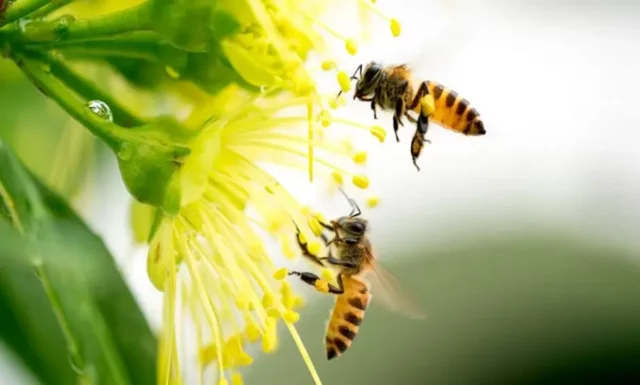The issuance of a decree to prohibit the industrial or professional use of Fipronil would not have a positive impact on bee populations. Entrepreneurs from the pest control industry and environmentalists point out that the measure announced by the government of Rodrigo Chaves has effects contrary to those desired.
And it is that the government decided to prohibit the industrial use, which is associated with the control of pests at the internal level of buildings or injection of the soil, while it left the use of the insecticide for agricultural application free.
For this reason, environmental organizations point out that they were deceived and that, since the use of the insecticide in agriculture is still allowed, bees continue to be at risk.
Ignoring what the Constitutional Chamber ordered
“This decree does not prohibit agricultural use, which is what is killing the bees. They are ignoring what the Constitutional Chamber ordered, which is to ban Fipronil (…), it is a partial ban decree and basically it has no effect on bees, they continue to be at risk,” said Henry Picado, spokesman for the Ecologist Federation ( Fecon).
The “worst decree” that could have been drawn up in relation to the issue is what the country’s pest control sector claims, since the product was banned in an area where bees are not affected.
A direct impact on the national hotel industry and construction is projected by this union, according to Gilbert Hidalgo, an agronomist and member of the Board of Directors of the Chamber of Professional Controllers of Urban Pests and Pathogens (Acoplagas).
“They made a decree with the least used product, the product used by professionals, in areas where bees are not at risk, and they can be walking in the country’s lumber industry, in wooden constructions, the houses of Costa Ricans.
This goes to make the professional industry go and buy the agricultural products to use them for that and if they don’t get them for professional use, they will go buy them outside the country,” said Hidalgo.
Not carrying out the necessary controls on pests
This prohibition of professional use would prevent industry experts from carrying out the necessary controls on pests such as termites, Germanic cockroaches, flies, weevils, moths, and even the dangerous crazy ant, which has spread to the west of the country.
Precisely, the high risk of the presence of the crazy ant on Costa Rican soil has caused the Chamber to issue a warning and ask to declare a national emergency, due to the harmful effects of this animal on crops and human health.

Due to the fact that most of the construction of the rooms and of the buildings of the hotel and tourism sector depend on the control of xylophages and termites, as well as restaurants and the like, they warn of an affectation of national tourism.
Added to this, around a thousand workers unionized to the Chamber could be harmed by this measure, generating a significant economic affectation for the country and unemployment levels.
On the other hand, they point out that the decree was never consulted with the industrial sector, for which reason they are preparing an appeal against the government’s measure.
“We are going to hire a lawyer specialized in the matter to file an appeal because it was not consulted, if we are a Chamber it should have been consulted first, if they had done so we would have told them that they were aiming badly, they prohibited the one who did not they had to ban it,” added Hidalgo.

